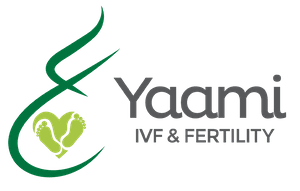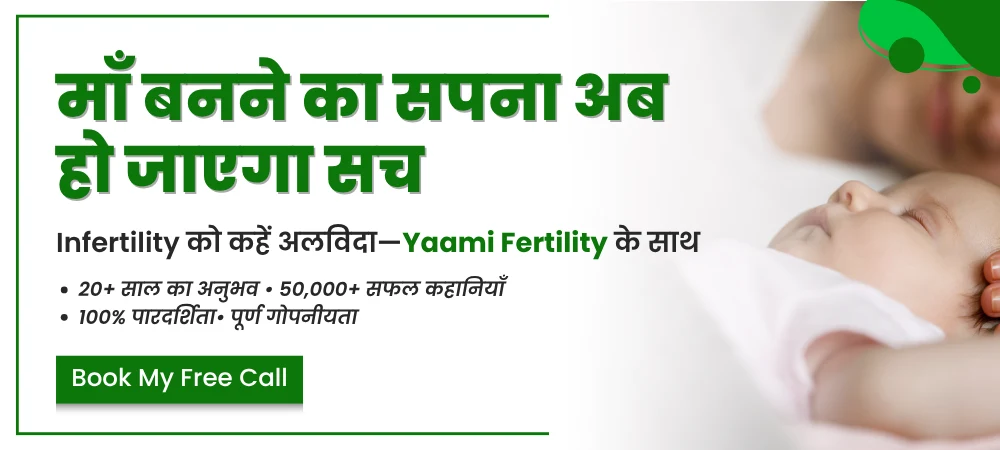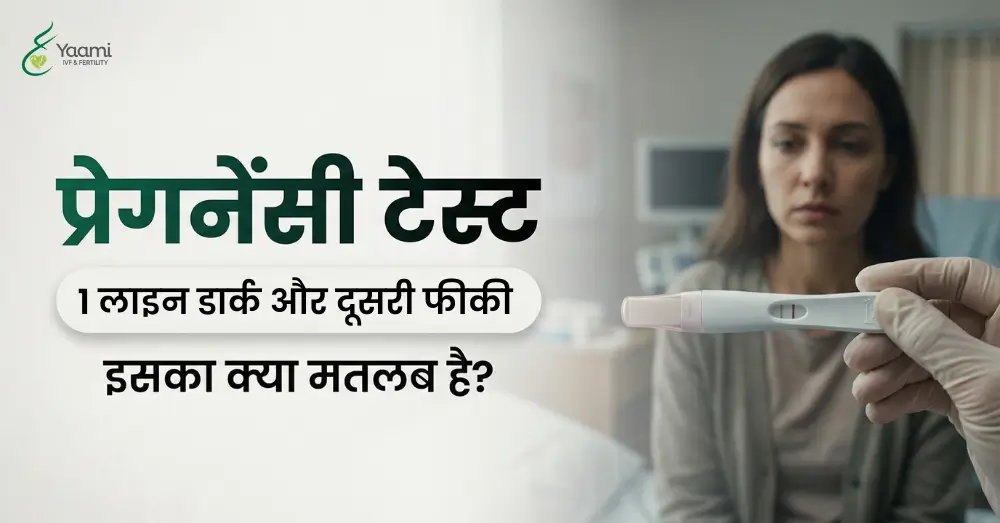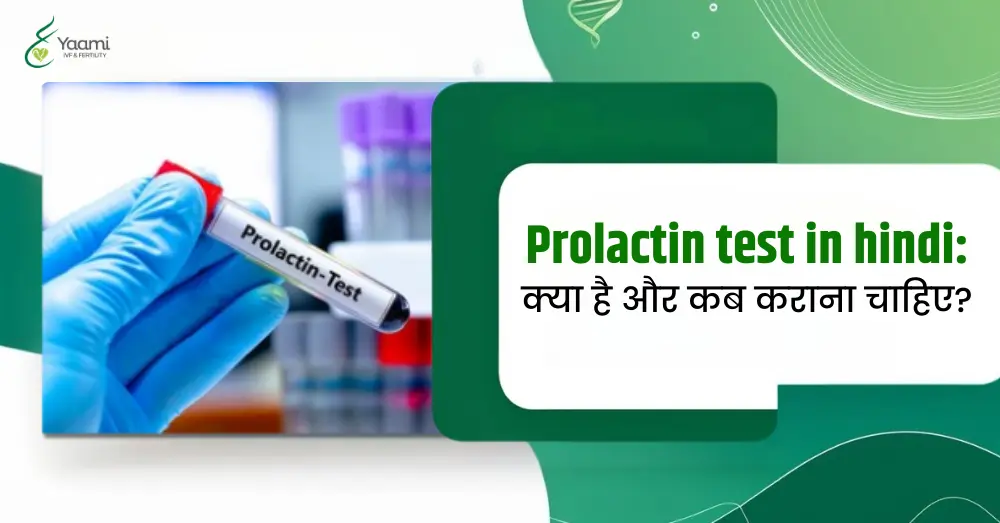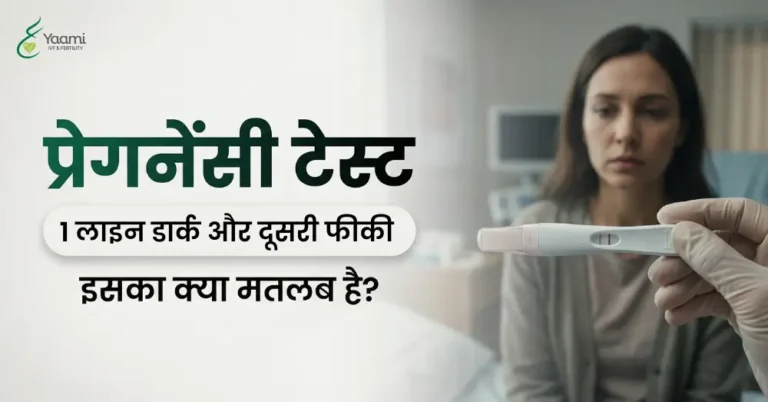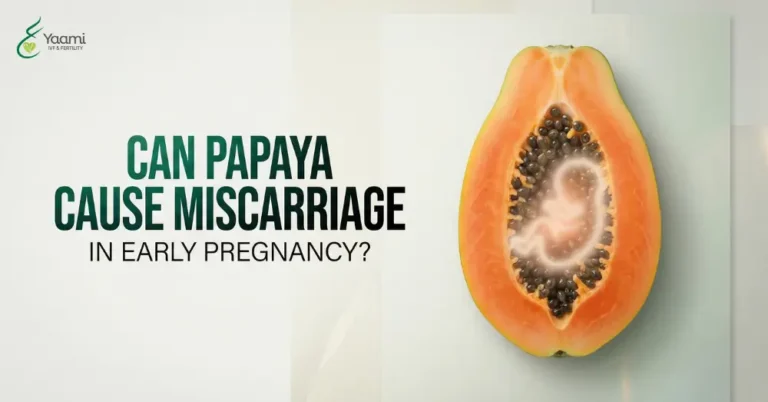The difference between IVF and surrogacy is a topic often discussed when someone is looking for an alternative route to parenthood. For someone who is completely new to this process, you might have a lot of questions. “Is it safe?” or “Are these the same process?”
To bring your curiosity to rest, this blog will answer all your questions.
For starters, both processes are completely different in approach and have their own drawbacks and benefits. What will be the right choice for you will depend on several factors but both of the techniques are equally miraculous.
Let’s start the journey of becoming parents with Yaami Fertility and IVF Centre, which is located in Indore.
All About IVF and Surrogacy
Let’s start by understanding both processes individually, comparing them to each other, how they are different and what makes them unique.
What is IVF?
IVF (In vitro Fertilisation), commonly known as test tube baby, is a process under which a woman has to go through different steps of a procedure in order to conceive. It is a scientific technology, where the egg and sperm are combined outside the body of the woman. Once the fertilization process is completed, the embryo is then injected into the woman’s body.
Once the fertilization process is completed, the embryo is injected into the woman’s womb.
The IVF procedure includes the following steps-
- Stimulation– Ovarian stimulation is a step in which women are prescribed hormonal medicines which help them produce multiple eggs at the same time.
- Egg Retrieval– Once the eggs are formed, through a simple procedure with the help of a needle those eggs are retrieved from the ovaries under anesthesia. It is recommended that you take bed rest for some time after the egg retrieval.
- Sperm Collection– This step is specifically for the male partners. They have to provide a sample of sperm for further testing in the lab.
- Fertilization– In this step, sperm samples and the egg are combined in a particular environment in the lab (in vitro) so that they can be fertilized properly. In simple terms, embryos are formed in labs through the sample extracted from the male partner and eggs extracted from the woman’s ovaries.
- Transfer– Once the doctors have a perfectly developed quality embryo ready, it is then transferred or implanted into the woman’s womb.
Once the Implantation is successful, after some time a normal blood test is conducted to know whether the woman is pregnant or not.
Benefits of IVF
- Higher chances of success– With IVF, only the viable eggs are selected which increases the chances for a woman to get pregnant.
- Fertility Preservation-This is a way of freezing your eggs so that in future if you wish to have more kids you can easily do so without any troubles.
- You can choose the time – IVF can provide you control over when you wish to get pregnant since people have different things that need more focus.
- Improves the chances of having a healthy baby – In IVF, only those eggs are used which appear healthy. It also gives an option to screening and filter out the embryos with genetic disorders
- Successful for age-related infertility– Suitable for women who are advanced in age (30-45) and were not able to conceive through normal intercourse.
- Reduced multiple pregnancy risk– In IVF, the risk of conceiving twins or triplets is minimised.
Drawbacks of IVF
- Can be costly– Only if the IVF cycle is not successful and has to go through another round. But with a success rate of 70-80% in the first IVF-ICSI cycle at Yaami IVF Centre it should not be a problem.
- Emotional toll– Since the process requires time and patience it sometimes causes emotional problems, but with experts at Yaami IVF and Fertility Centre this can be resolved as they offer counselling and therapies as well.
- OHSS– Ovarian hyperstimulation syndrome is the response to excess hormones. But with the medical advancements chances of this happening are very rare.
Who is an Ideal Candidate for IVF?
- Couples with infertility issues- suitable for couples who are facing the issue of infertility.
- Single people – If you are a single woman who wishes to get pregnant, this is the perfect method to do so.
- Need fertility preservation- Ideal for someone who does not wish to have a child now, but wants to have them in a later stage of their lives.
What is Surrogacy?
Surrogacy is usually an arrangement, 100% legal arrangement where a woman lends her womb to a couple who are trying to get pregnant but due to infertility issues and problems in the female womb, they are not able to. It is a process where a woman under proper assisted reproduction process carries the baby in her womb for another couple or people.
Types of Surrogacies
- Traditional Surrogacy-
In traditional surrogacy, it is simple, the egg of the surrogate woman and sperm of the intended father are fertilised in the lab and then implantation of that embryo is injected into the surrogate woman’s body.
Sometimes in traditional surrogacies, couples do not involve doctors, instead of using implantation they simply indulge in sexual intercourse with the consent of both parties and try to get pregnant. In such cases, the child ends up looking like the father or the surrogate woman.
- Gestational Surrogacy –
In this kind of surrogacy, the egg of the intended mother and the sperm of the intended father is used, and through IVF Technology it is fertilised and then implanted in the surrogate’s body.
Benefits of Surrogacy
- Biologically your child– Through Gestational surrogacy, genetics are the same and the child may end up looking like the intended father or mother.
- Medical miracle– It is an advancement in medical science as women who can’t get pregnant can have a baby who might end up looking like them..
- Surrogacy eliminates risk to the intended mother-This is suitable for women who are very older and are not physically fit to carry a child.
- Control over pregnancy– The intended parents choose the surrogate and can make decisions about prenatal care during pregnancy.
Drawbacks of Surrogacy
- Miss out on the experience of being pregnant– As you are not physically fit or have risks to your life if you get pregnant
- Expensive – It can be expensive as you have to take care of the surrogate as well.
- Emotional attachment- Sometimes the intended mother takes a little longer to connect with the baby.
Who is an Ideal Candidate for Surrogacy?
It is important to know whether you fall in the criteria of actually being the ideal candidate for surrogacy.
- An abnormal uterus or absent uterus,
- Continuous IVF failures,
- Medical conditions that advise against pregnancy.
Difference Between IVF and Surrogacy
There is a huge difference between surrogacy and IVF. From the start of the process till the end, the genetics of the baby, everything is different.
- Procedure– IVF is a procedure where fertilization happens outside the body of the woman, whereas in surrogacy the woman carrying your baby has to deliver the baby on the intended parent’s behalf.
- Timeframe– If IVF is successful after the first round of treatment, it is only a matter of a few weeks. On the other hand, even finding the right surrogate can take some time.
- Cost– IVF is not very costly when compared to Surrogacy as it involves treatment charges and then the surrogates are also compensated for their services.
- Success Rate– In surrogacy, the success rates are usually higher as the surrogates are properly examined before being finalised
IVF does not provide a 100 percent guarantee, as there are a lot of factors which are at play. Sometimes women’s bodies act differently throughout the procedure and their bodies may take some time to accept the treatment.
Conclusion-
There is no way one can clearly say IVF is better than surrogacy. Both of these processes hold importance. If you are a single man or someone who might have a life risk if you carry a child then surrogacy is a route for your dreams to come true.
It is important to understand these techniques before you start your journey of becoming a parent. It is always advisable to connect with fertility clinics like Yaami Fertility and IVF centres. They have various options that may help you with your infertility problems and can guide you with all the details in a more efficient manner.
Frequently Asked Questions-
Which is better- IVF or Surrogacy?
Surrogacy is an option when there is a continuous failure in IVF or due to a medical condition which advises a woman against getting pregnant whereas IVF is a choice for couples who are not able to conceive through the natural process Surrogacy is chosen by the couple who have been in their mid 30’s trying to conceive.
Will the baby look like the surrogate mother?
To answer this you have to consider which kind of surrogacy you are opting for. Babies through gestational surrogacy do not get the surrogate’s DNA.
Is IVF a surrogate?
IVF (In Vitro Fertilization) is a method to assist conception by fertilizing eggs with sperm outside the body. Surrogacy involves a woman carrying a baby for intended parents who cannot carry a pregnancy themselves. IVF can be part of the process in some surrogacy arrangements, but they are not the same.
What are the disadvantages of surrogacy?
Surrogacy can bring emotional complexities, legal issues, financial burdens, and medical risks for the surrogate. Social stigma and misunderstandings about surrogacy may also exist in some communities.

Dr. Swati Singh (MBBS, MD – Obstetrics & Gynecology, DNB, FRM, Diploma in Reproductive Medicine and Embryology – Germany) is a leading Infertility Specialist and Gynecologist with over 18 years of experience. As Co-Founder and Senior Consultant at Yaami Fertility & IVF Center, Indore, she offers advanced fertility care including IUI, IVF, ICSI, and management of female reproductive disorders. Known for her compassionate and patient-first approach, Dr. Swati combines global training with deep clinical expertise. She is also actively involved in women’s health advocacy, medical research, and promoting awareness about reproductive wellness and fertility treatments.
